Letter formation Alphabet Worksheets for Ages 3-9
10 filtered results
-
From - To
Introducing our "Letter Formation Alphabet Worksheets for Ages 3-9," a fantastic educational resource designed to help young learners master the basics of writing. Perfect for preschoolers, kindergarteners, and early grade school students, these worksheets focus on proper letter formation through fun and engaging activities. Each sheet provides step-by-step instructions, colorful illustrations, and practice areas to ensure your child develops strong writing skills while enjoying the learning process. Improve your child’s handwriting, fine motor skills, and confidence in forming letters accurately with our expertly crafted worksheets. Make learning fun and effective with our comprehensive alphabet worksheets!


Letter A Tracing Page


Letter P Tracing Page
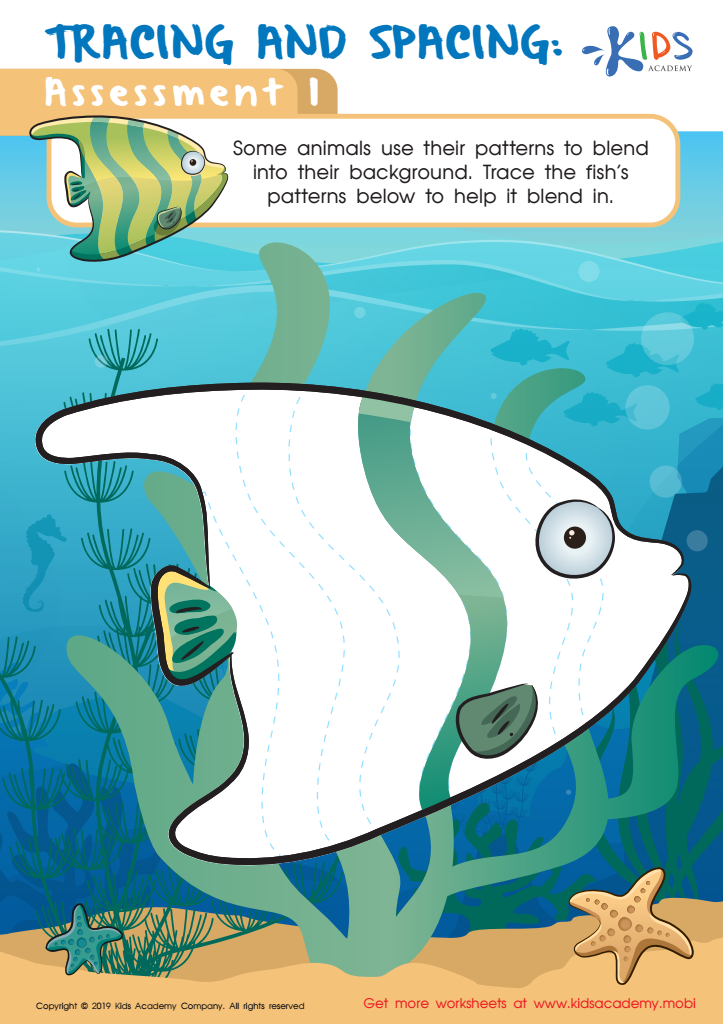

Tracing and Spacing: Assessment 1 Worksheet
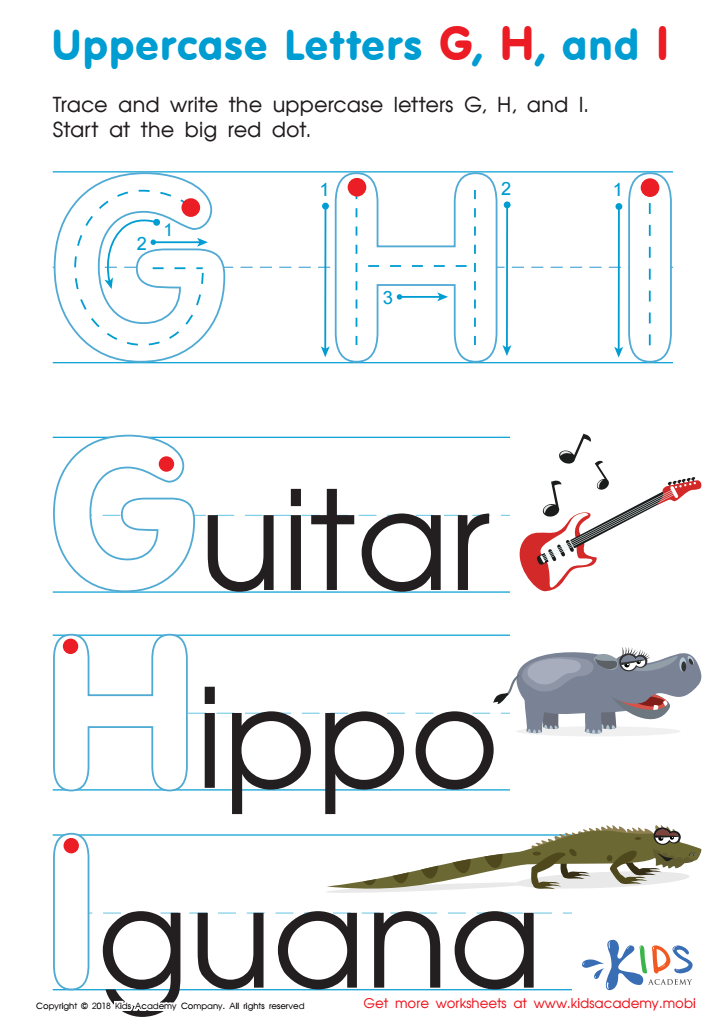

Uppercase Letters G, H, and I Worksheet
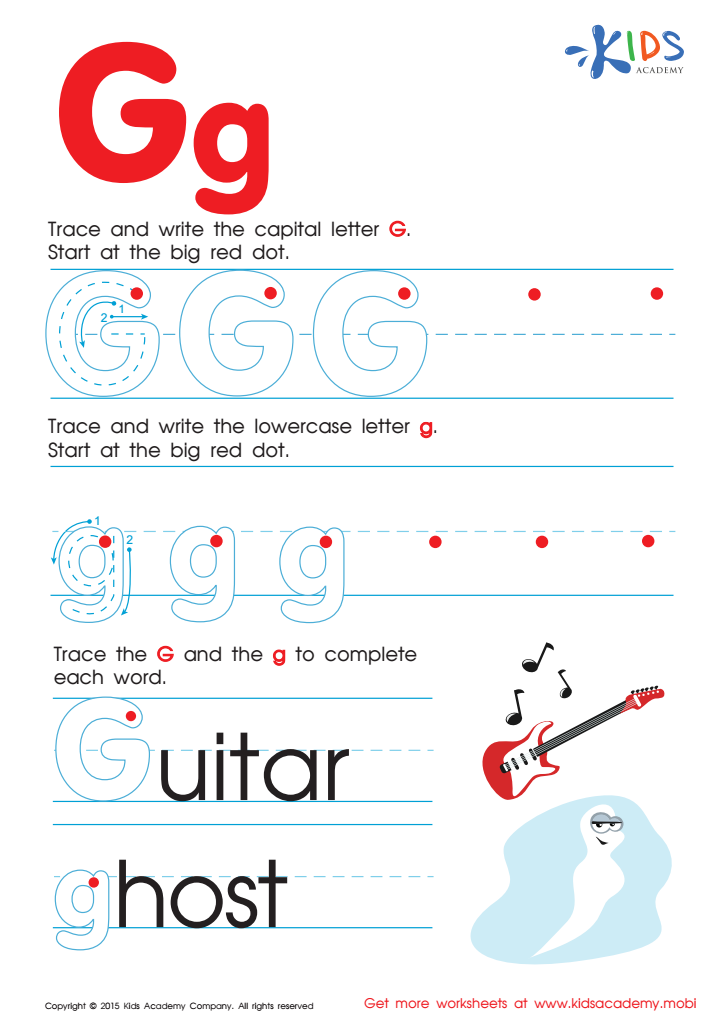

Letter G Tracing Page
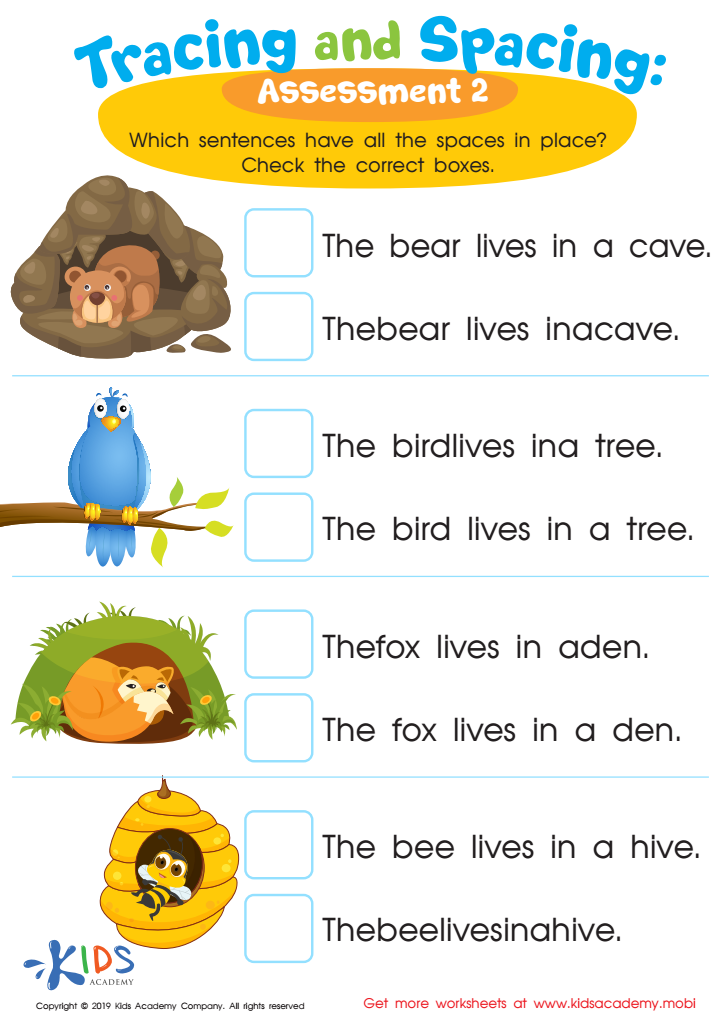

Tracing and Spacing: Assessment 2 Worksheet
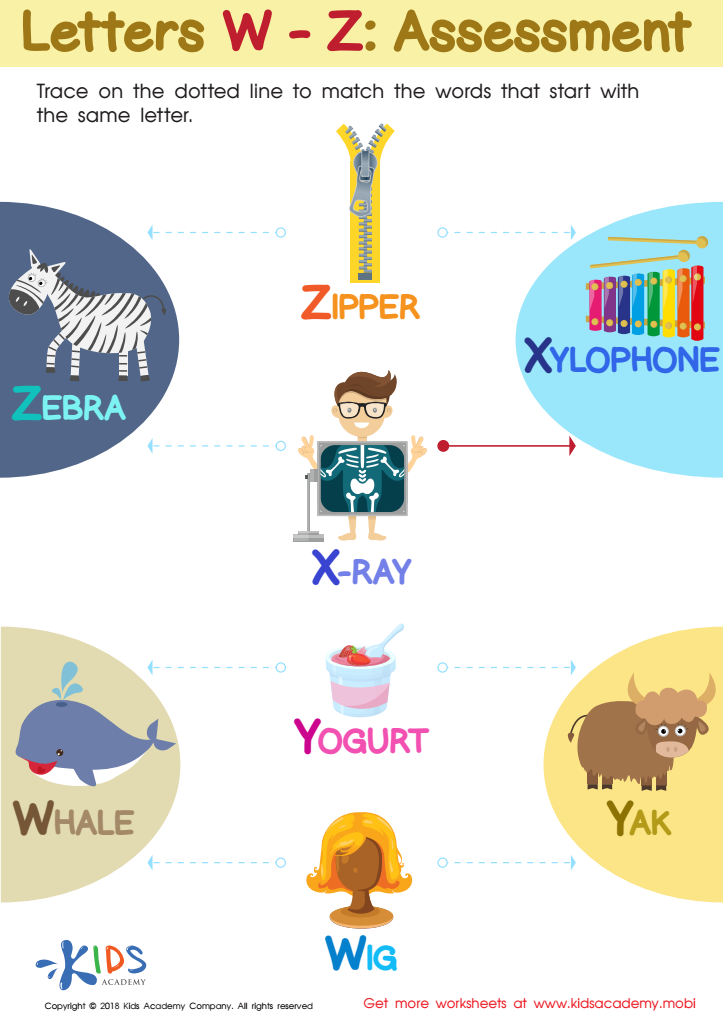

Letters W–Z Tracing Worksheet
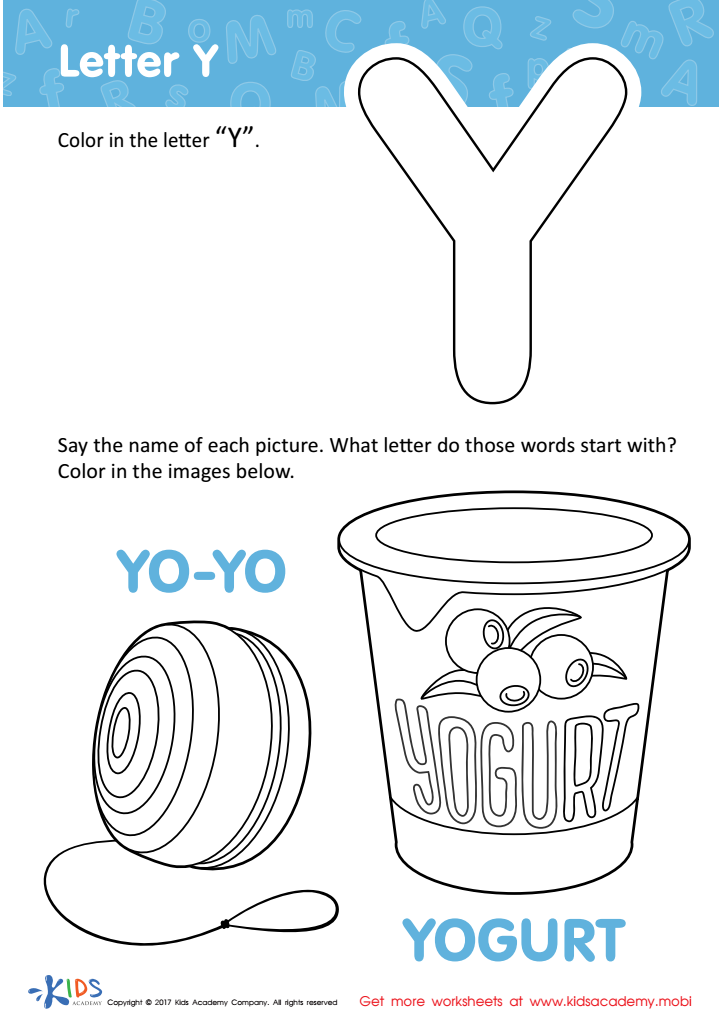

Letter Y Coloring Sheet
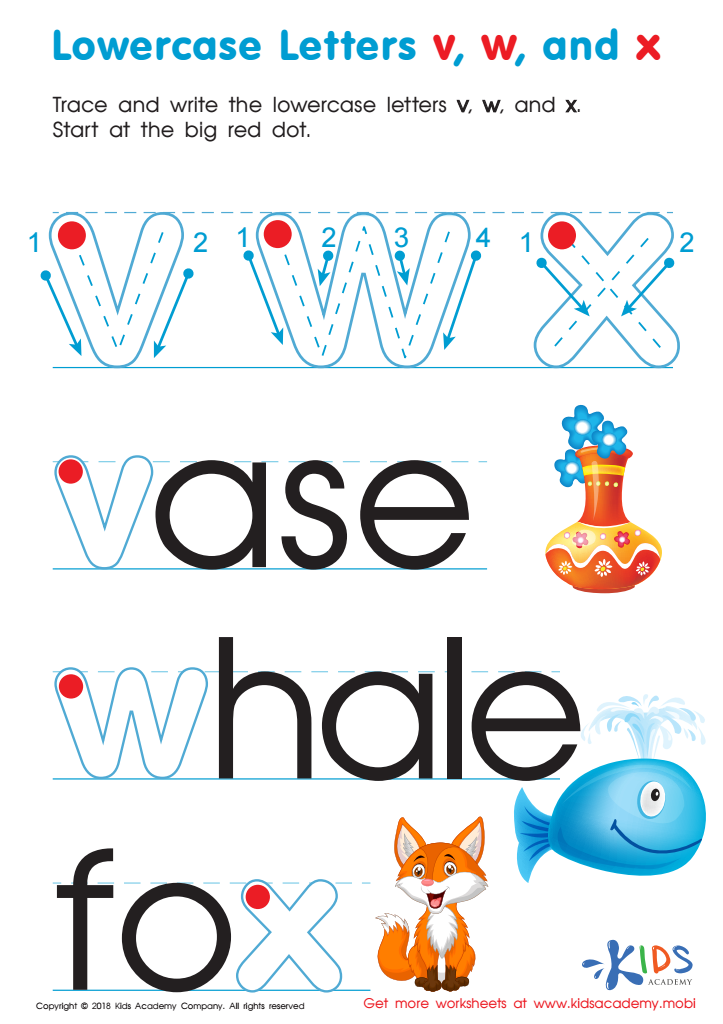

Lowercase Letters v w x Worksheet
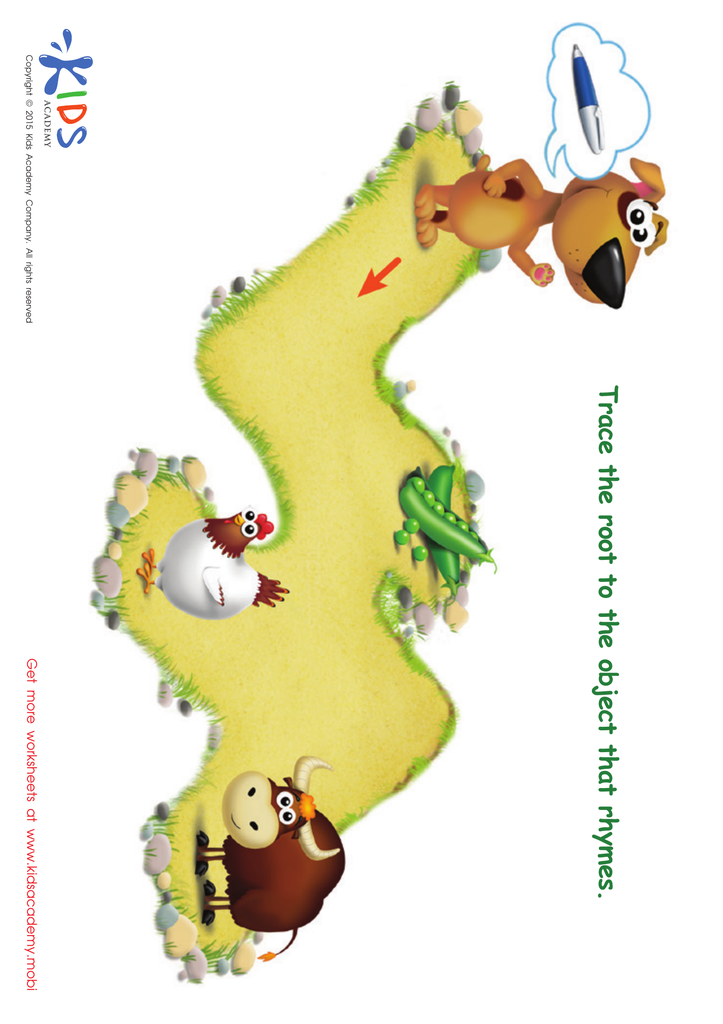

Pen Rhyming Words Worksheet
Letter formation during the formative ages of 3-9 is crucial because it lays a strong foundation for literacy development. Parents and teachers who focus on this skill ensure that children gain the competence needed to write clearly and fluently, which significantly impacts their overall academic success.
Firstly, proper letter formation leads to legibility. When children learn to form letters correctly, their writing becomes more readable, which is essential for clear communication. This helps teachers and peers understand their writing, reducing frustration and fostering a better learning environment.
Secondly, mastering letter formation enhances fine motor skills. Activities involving pencil grip and precise movements aid in developing hand-eye coordination and muscle memory. These skills are not only vital for writing but also for other tasks such as tying shoelaces and using utensils.
Lastly, poor letter formation can lead to difficulties in reading and spelling. Learning to write letters accurately helps children recognize those letters more easily when reading. This connection between writing and reading reinforces their knowledge and boosts confidence in their literacy skills.
Investing time in teaching proper letter formation can lead to a smoother educational journey, reducing challenges later in life. Hence, parents and teachers should prioritize this fundamental skill to ensure a strong, positive start to a child's academic career.
 Assign to My Students
Assign to My Students












